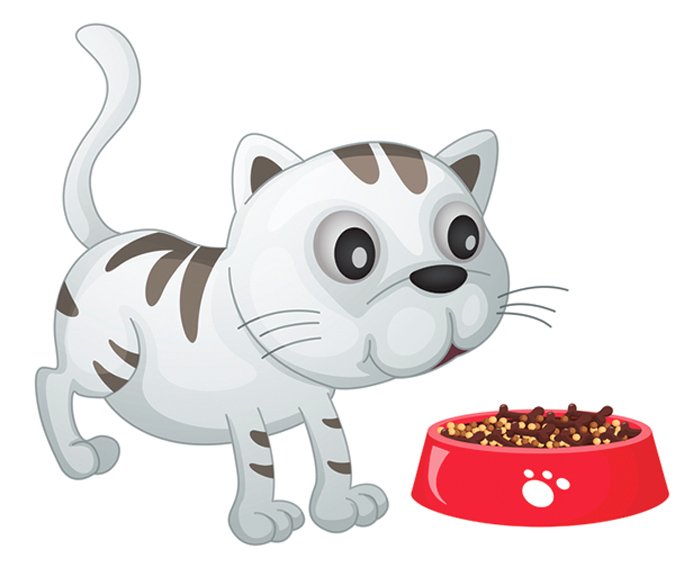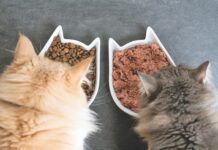A study in the May 15, 2019, Journal of the American Veterinary Medical Association looked at the nutritional adequacy of recipes provided by various sources for homemade diets for cats. The recipes evaluated were all for maintenance only, and no therapeutic diets were included.
Of the 114 recipes examined, only 94 had enough information for them to be analyzed and compared to National Research Council nutritional recommendations for cats (see related story sidebar on p. 7). Recipes were located online or in books, with some being provided by veterinarians and others by non-veterinarians.
Directions for preparing and feeding the diets were often lacking. Preparation can influence the availability of some nutrients, and the amounts fed affect how much of a given nutrient a cat gets with each meal.
Virtually all the diets lacked some essential nutrients, including choline and taurine in some cases. Some recipes contained extra amounts of important nutrients, but no recipe met all of the recommended allowances for a healthy feline diet.
Five of the recipes (all formulated by veterinarians) came close to being nutritionally adequate, lacking one nutrient. Others were deficient in as many as 19 nutrients. A few recipes included ingredients that can be toxic to cats, such as garlic and onions. Over the short term, most cats could handle these diets, but when they are fed long term, deficiencies would likely become evident.
If you make home-prepared meals for your cat, you should consult a veterinary nutritionist, such as at Cornell (http://www.loftuslab.vet.cornell.edu/nutrition-service.html or 607-253-3060), for a customized recipe designed for your cat.




